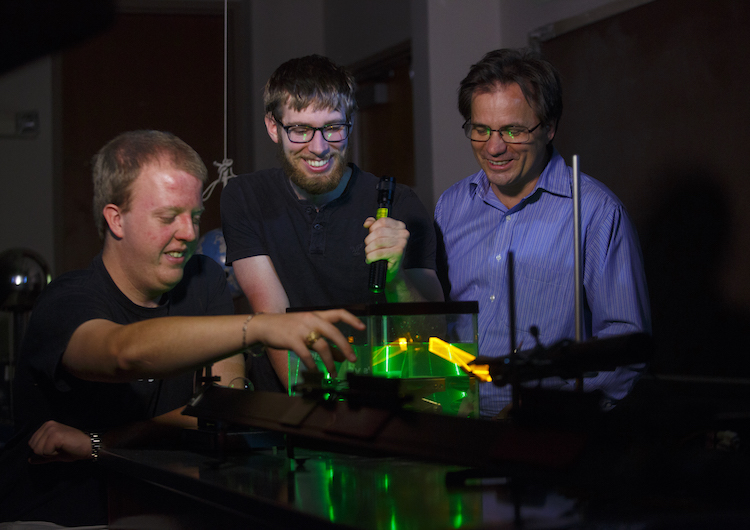Bachelor's Degree in Physics
Degree: Bachelor of Science
Major: Physics
Hours: 120

Physics Overview
The Lamar University Bachelor of Science in Physics will suit you if you are seeking employment in industrial, governmental or private organizations that require a strong scientific background or if you are seeking to continue your academic career in either graduate school or professional/medical school.
This program places a strong emphasis on physics and mathematics. You can tailor it for your needs whether you're preparing for graduate school or employment in a variety of fields.
You'll graduate with a functional knowledge of physics, critical thinking and problem-solving skills and the ability to effectively use, discuss and write about the literature and trends of the discipline. Watch the faculty interview to learn more about physics and computer science degree programs at LU.
Physics Courses You May Take
Mathematical Methods in the Physical Sciences: The goal of this class is for the student to acquire a deeper understanding of mathematical theory and the subsequent applications of advanced mathematical techniques to the physical sciences. The successful modeling of physical problems requires adept application of a wide range of mathematical concepts. Mathematics is the language of physics.
Modern Physics: Special relativity; duality particle-wave; elements of quantum physics; atomic and molecular structure; solid state and statistical physics.
Electricity & Magnetism: Subject matter covers electrostatic fields; potential; capacitance; dielectrics; electromagnetic waves. Maxwell's equations; conduction in gases; and thermoelectricity.
Statistical Physics: Subject matter includes: temperature and thermometry; internal energy, entropy, and thermodynamic potentials; introduction to the kinetic theory of gases and the Maxwell-Boltzmann, Bose-Einstein and Fermi-Dirac statistics.
Analytical Mechanics: The use of vector notation in formulating and applying Newton's laws and the principles of momentum and energy. Dynamics of particles and rigid bodies emphasized with statics treated briefly.
Career Paths for Physics
Physicists work in the manufacturing and marketing of medical diagnostic and therapeutic equipment, as well as in high-tech industries such as aerospace, telecommunications, semiconductors, computer manufacturing and nuclear energy. Government agencies involved in national security and research also have a need for individuals with a physics background.
Primary Careers
Physicist, researcher, analyst, developer
- Research
- Medicine
- Forensics
- Finance
- Communications
- Manufacturing
- Energy
- Government agencies
- Research and development companies
- Energy and nuclear energy companies
- Schools and universities
- Research institutions
- Manufacturing companies
